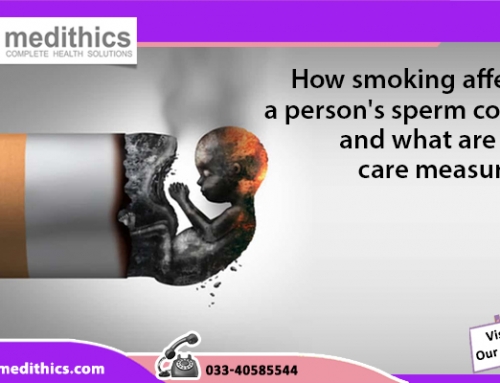Sexually transmitted diseases (STDs) fall under the most common infectious diseases. Since these conditions involve the transmission of an infectious organism between sex partners STDs are sometimes referred to as sexually transmitted infections. Any type of sexual activity involving the sex organs, the anus or the mouth, can cause the infection to spread, depending on the disease. During sexual activity, an infection can also be spread through contact with blood. STDs are infrequently transmitted by other types of contact. Some common sexually transmitted diseases are described below.
1. Chlamydia
A common sexually transmitted disease is called Chlamydia. Chlamydia trachomatis, a type of bacteria, causes this. Both men and women can be infected by it. In the cervix, rectum or throat, women can get Chlamydia. Urethra (inside the penis), rectum or throat are the areas where men can get Chlamydia. You can get infected by Chlamydia on involving in oral, vaginal or anal sex with someone having the infection. During childbirth, a woman can also pass chlamydia to her baby. If you have unprotected sex with someone having chlamydia, you can get re-infected with it if you’ve had Chlamydia and were treated in the past. In young people, especially young women, Chlamydia is more common. If you don’t regularly use a condom or have multiple partners, you are more likely to get it. For treatment of it, you should consult the best sexologist doctor.
2. Genital Herpes
A type of sexually transmitted disease (STD) caused by a herpes simplex virus (HPV) is called genital herpes. On your genital or rectal area, buttocks or thighs, sores can develop due to this. From having vaginal, anal or oral sex with someone who has genital herpes, you can get it. Even when sores are not present, the virus can spread. Babies can also get infected from their mothers during childbirth. Outbreaks are usually symptoms of herpes. Near the area where the virus has entered the body, the sores usually develop. In newborn babies or in people with weak immune systems, the virus can be more serious. Genital herpes can be diagnosed by tests. Symptoms can become less and outbreaks decrease on taking medicines and this lowers the risk of passing the virus to others. It can reduce, but not eliminate, by the correct use of latex condoms.
3. Gonorrhea
Another type of sexually transmitted disease is gonorrhea. In young adults, it is most common. The genital tract, mouth or anus can get infected by the bacteria that cause gonorrhea. When you get involved in vaginal, oral or anal sex with an infected partner, you can get gonorrhea. During childbirth, it can pass from a pregnant woman to her child. Having pain when urinating and discharge from the penis are symptoms of gonorrhea in men. In women, bleeding between periods, pain when urinating and increased discharge from the vagina are symptoms of gonorrhea. Problems with pregnancy and infertility can happen due to pelvic inflammatory disease, which results from untreated gonorrhea. Lab tests are done to diagnose gonorrhea. Sexologists use antibiotics for treatment. Latex condoms can also prove helpful in the reduction of the risk of catching or spreading gonorrhea.
4. HIV/AIDS
Human immunodeficiency virus is the full form of HIV. Destruction of the white blood cells, which fight infection, is done by it. The final stage of infection with HIV is known as AIDS or acquired immunodeficiency syndrome. Unprotected sex with an infected person is the reason for spreading of HIV. Sharing of drug needles or contact with the blood of an infected person are other causes of it. It can also pass from women to their babies during pregnancy or childbirth. Swollen glands and flu-like symptoms are the first signs of HIV infections. A blood test can be done to identify HIV. Many medicines are used to fight HIV infection and lower the risk of infecting others.
5. Syphilis
A sexually transmitted disease caused by bacteria is called syphilis. In both men and women, it infects the genital area, lips, mouth or anus. From sexual contact with someone who has it, you usually get syphilis. During pregnancy, it can also pass from mother to baby. Symptoms of syphilis may range from single, small, painless sore to non-itchy skin rash. Sometimes, in nearby lymph nodes, it causes swelling. During sex, you can get HIV from someone having sores caused by syphilis. Syphilis can cause complications during pregnancy and a woman may also lose her baby. Syphilis causes serious health problems and even death in rare cases. If diagnosed early, syphilis is easy to cure with antibiotics. The risk of catching or spreading syphilis is greatly reduced by proper usage of latex condoms.




